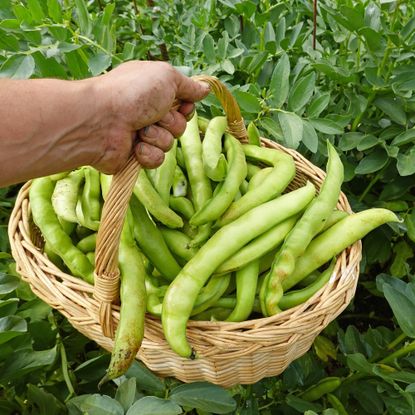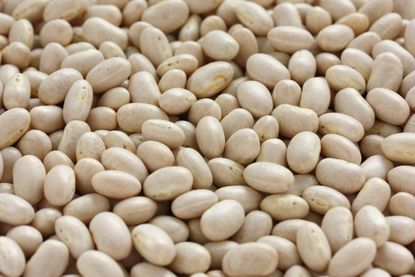Beans
Learning how to plant beans in the garden successfully will help eliminate most of your bean plant problems. That’s why we’ve dedicated an entire section to growing beans. Here you will find everything you need to know for the care of bean plants in the garden. Learn how to grow beans and care for them all season long—including how to deal with any bean plant problems you may come across along the way.
-
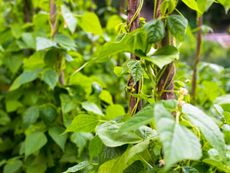
Planting Pole Beans: How To Grow Pole Beans
Growing pole beans allows the gardener to maximize planting space. Planting pole beans also ensures a longer crop period and may yield up to three times as many beans as the bush varieties. Read here for more info.
By Bonnie L. Grant
-
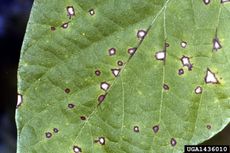
Leaf Spot On Beans: How To Control Cercospora Leaf Spot In Beans
Gardening is supposed to be a relaxing hobby, but when your beans are sick, it can turn pretty frustrating. Learn the symptoms of cercospora leaf spot of bean plants and how to manage it in this informative article. Click here for more information.
By Kristi Waterworth
-

What Are Causes Of Halo Blight: Treating Halo Blight On Bean Plants
Beans are more than just a musical fruit - they're a nutritious and easy-to-grow vegetable plant! Unfortunately, they're also prone to a few common bacterial diseases, including halo blight. Learn how to identify and manage this frustrating bean affliction here.
By Kristi Waterworth
-
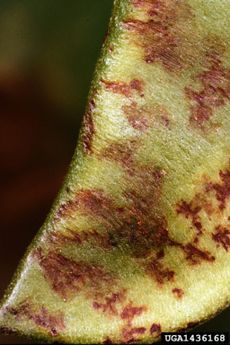
Lima Bean Diseases: Learn How to Treat Sick Butter Bean Plants
When our garden plants are sick, we are left to the difficult task of diagnosing and treating the problem ourselves. Gardening Know How tries to provide easy information about plant diseases and their symptoms. In this article, we will discuss diseases of butter beans.
By Darcy Larum
-
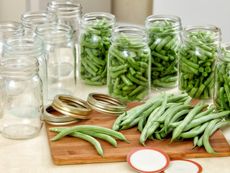
How To Preserve Green Beans From The Garden
Beans are delicious, but sometimes you get too many. Read how to preserve a bumper crop of fresh green beans to enjoy all year.
By Laura Miller
-
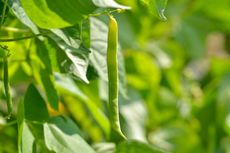
National Bean Day: Learn About The History Of Green Beans
Green bean history is lengthy, indeed, and worthy of a song or two. There’s even a National Bean day celebrating beans! According to the history of green beans, they have been a part of our diet for thousands of years. Look at the evolution of green beans in history here.
By Amy Grant
-
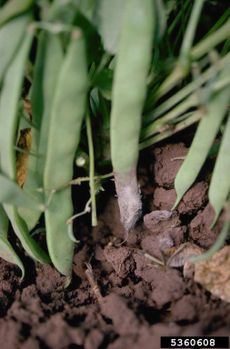
Mold On Beans – Troubleshooting Common Bean Plant Diseases
Do you have mold on your bean plants? There are a few common bean plant diseases that may result in a white mold on bean plants. Don't despair. You can learn what to do about moldy bean plants in this article.
By Amy Grant
-
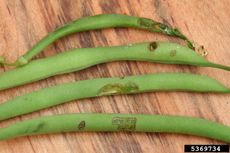
Organic Beetle Control: How To Keep Beetles From Green Beans Naturally
A major marauder of green beans is the beetle, of which there are several different types. Find out how to keep beetles from green beans and other legumes in this article. Click here for additional information on controlling these pests organically.
By Amy Grant
-
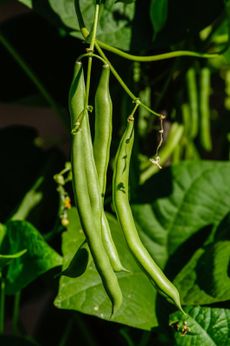
Bountiful Bean Facts – How To Grow Bountiful Heirloom Beans
Selecting beans that are well suited to your own growing region will help to ensure abundant harvests. One variety, ‘Bountiful’ bush bean, is especially prized for its vigor and dependability. Click here for more information on this bush bean variety.
By Tonya Barnett
-
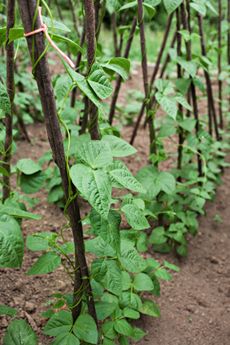
Pole Bean Supports: How To Stake Up Pole Beans
Many people prefer to grow pole beans over bush beans due to the fact that pole beans will produce longer. But pole beans must be staked up. Learning how to stake pole beans is easy. This article will help.
By Heather Rhoades
-
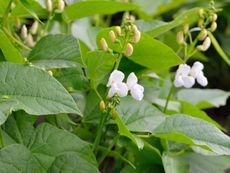
Bean Blossom Problems: Reason For Bean Blossoms Falling Off Without Making Pods
When bean blossoms drop off without producing a pod, it can be frustrating. But if you understand why you are having bean blossom problems, you can work towards fixing the issue. Learn more in this article.
By Heather Rhoades
-
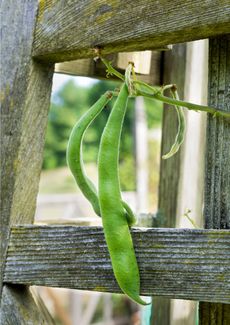
What Is A Bean House: Learn How To Grow A House Made Of Beans
A bean house is a style of trellising vines for growing beans. If you love this spring vegetable, but have struggled to harvest them or create a support that you like the look of, think about constructing a bean trellis house. This article can help get you started.
By Mary Ellen Ellis
-
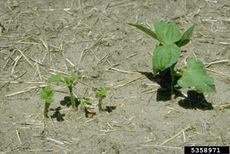
Managing Baldhead Of Beans – Symptoms Of Baldhead Bean Disease
What is baldhead in beans and how do you treat this odd-sounding but very destructive plant problem? Click this article that follows to learn more about baldhead bean disease (which isn't a real disease, but a type of damage to the seeds).
By Mary H. Dyer
-

Soaking Dry Beans – Why Do You Soak Dry Beans Before Cooking
Soaking dry beans accomplishes two goals: cutting cooking time and reducing stomach distress. Learn more about dry bean soaking in this article.
By Amy Grant
-
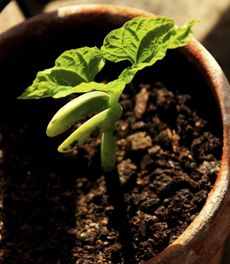
What Are Adzuki Beans: Learn About Growing Adzuki Beans
Adzuki bean nutrition is off the charts with loads of fiber and vitamins. The beans are fairly easy to grow but require a long season. This article will provide additional information on growing these beans in the garden.
By Bonnie L. Grant
-
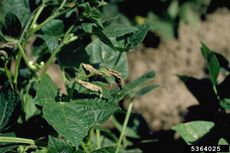
What Is Bean Sunscald: Managing Symptoms Of Sunscald In Bean Plants
Like any plants, there are specific pests and diseases that can affect beans. Spider mites and rust fungus are two common afflictions of beans. They are also commonly affected by a disorder known as sunscald. Click here to learn more about sunscald in bean plants.
By Darcy Larum
-
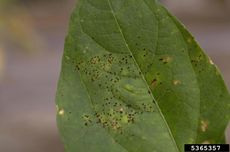
Rust Spots On Bean Plants: How To Treat Rust Fungus On Beans
While there is a lot of information available for blights that affect vegetable plants such as tomatoes and potatoes, fungal diseases of beans are not mentioned very often. This article will address what causes rust on bean plants and how to treat rust fungus on beans.
By Darcy Larum
